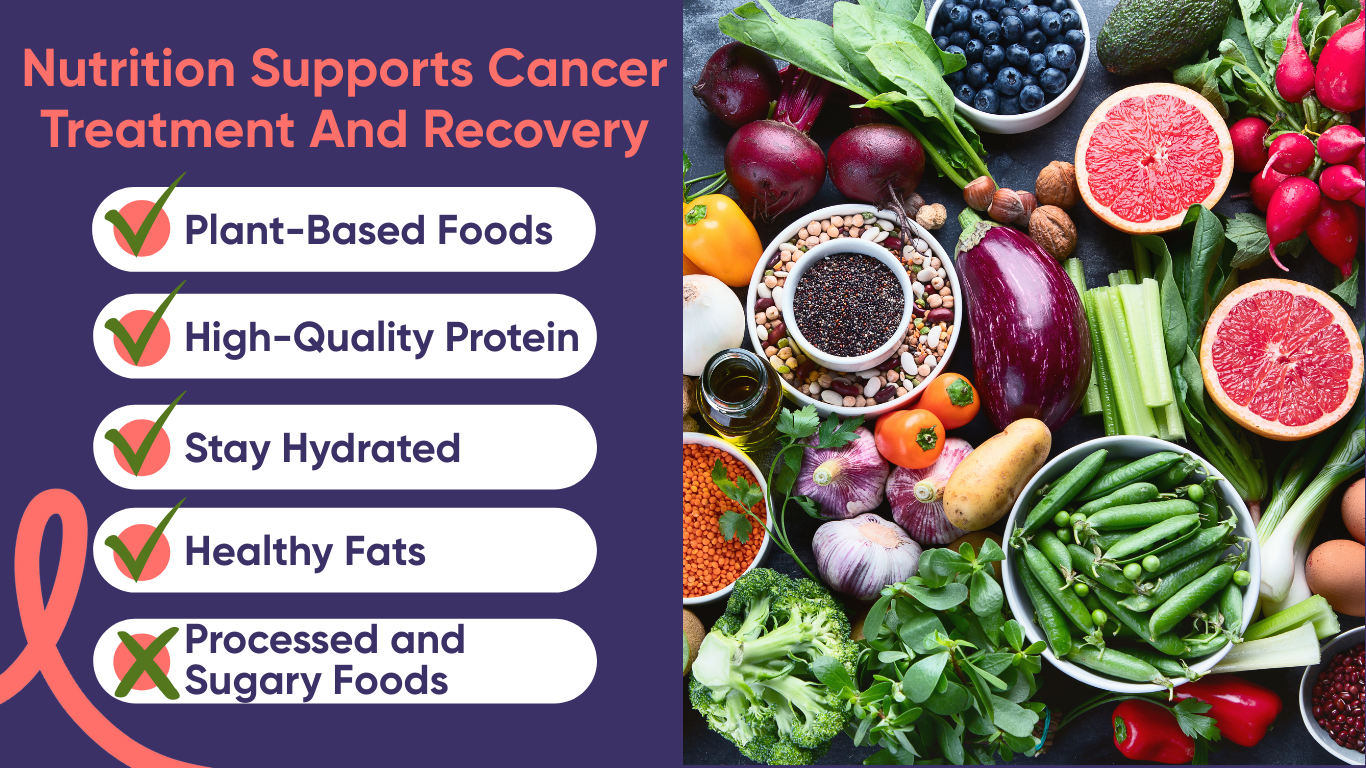Proper nutrition during and after cancer treatment plays a vital role in healing, strengthening the body, and improving quality of life. While nutrition alone cannot cure cancer alone, a balanced, healthy diet helps the body cope with treatment, rebuild strength, and support recovery.
Why Nutrition Matters During Cancer Treatment
Cancer treatments such as chemotherapy, radiation, and surgery can affect your body’s needs in many ways:
- Increase your need for calories, protein, and essential nutrients
- Cause side effects such as nausea, loss of appetite, mouth sores, diarrhea, or changes in taste
- Weaken your immune system, making nourishing foods even more important to help protect your body
Good nutrition can help you:
- Maintain your strength and energy
- Support healing and tissue repair
- Strengthen your immune function
- Manage treatment side effects more effectively
- Improve treatment tolerance and overall well-being
Key Principles of a Cancer-Fighting Diet
Prioritize Plant-Based Foods
- Fill your plate with vegetables, fruits, whole grains, beans, and nuts.
- These foods are rich in fiber, vitamins, minerals, and antioxidants that help your body stay strong and support overall health.
Include High-Quality Protein
- Protein is essential for maintaining muscle mass and repairing tissues.
- Good sources include lean meats, poultry, fish, eggs, dairy products, beans, tofu, and protein-rich shakes.
Stay Hydrated
- Drink plenty of water throughout the day.
- Herbal teas, broths, and electrolyte solutions can help replace fluids
Limit Processed and Sugary Foods
- Reduce consumption of heavily processed foods, sugary snacks, and red or processed meats.
- These foods can increase inflammation and make it harder for your body to recover
Focus on Healthy Fats
- Choose heart-healthy fats such as olive oil, avocados, nuts, and fatty fish rich in omega-3 fatty acids.
- These fats support brain and heart health and may help reduce inflammation
Coping with Common Eating Challenges
Cancer treatment can make eating hard, but small changes can help.
- Eat small meals more often instead of three big ones
- Choose soft or blended foods if chewing or swallowing hurts
- Keep light, easy snacks nearby when your appetite is low
- Drink water, soups, and smoothies to stay hydrated.
- Be patient – your taste and appetite will likely improve over time
Important Reminder About Supplements
- Some vitamins, herbs, or supplements can interfere with cancer treatments
- Always ask your doctor or dietitian before taking any supplements.
- Food-based nutrition is generally safest and most effective during treatment.
Feeding your body well is an act of hope and strength. With mindful, balanced eating, patients can face treatment with greater resilience and build a strong foundation for recovery.




